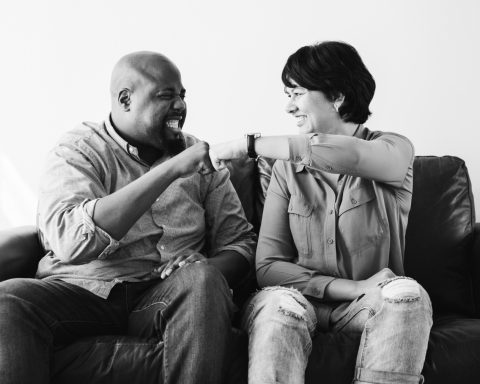What’s the first thing on your mind when you think about marriage? Is it to live with your chosen one for the rest of your life? To have kids? Or is it a wedding that you have always dreamed of?
You’re not wrong. Marriage is a sacred union that binds two people together to enter a new life journey called family. It’s a beautiful path to a more fulfilling and happy life. However, marriage requires readiness since it involves being responsible for yourself, your partner, and future children (if you plan to have them). Sadly, many people overlook the importance of readiness in these situations.
In this article, you will explore marriage readiness by understanding that readiness comes from yourself. You will also get approaches for developing marriage readiness. So, what does it mean to be ready for marriage? Read this article, and you’ll find out.
Understanding marriage readiness
According to the Merriam-Webster dictionary, readiness is a quality or state of being ready and willing to do something. Thus, readiness comes from the self. You only know you’re ready when you know how prepared and willing you are.
Marriage readiness can be defined as a state of being prepared and determined to get married. However, if you delve deep into the context, marriage readiness is way more complicated than that.
A case study from Southwestern Ontario, Canada, discovered some factors that led married couples to divorce. These factors tended to be:
- Marrying too young
- Premarital pregnancy
- Having children too early
- Economic weakness, and
- Incompatible backgrounds
These are the characteristics of marriage unreadiness, indicating that being ready for marriage is more than just being ready to get married; it is also about being ready to form a family, whether with children or not.
To embark on the evolving journey of creating a new unit, you must have a strong value for the family. This is about prioritizing and making your new family a central aspect of your life.
When you’re ready for family, you will decide to get married to a partner with the same values and, together, create a shared vision for forming a successful unit.
Characteristics of marriage readiness
After knowing the importance of marriage readiness, now it’s time to understand what characteristics you need to be ready for marriage.
Having a strong value for having a family is the cornerstone of being ready for marriage. You also need to have the following qualities to reflect that value. Here are the signs that you’re ready for marriage:
Self-awareness and emotional maturity
Self-awareness means being able to listen and understand your thoughts, feelings, behaviors, strengths, weaknesses, values, and impact on others. It’s the bare minimum of marriage readiness. When you already have this self-awareness, you will know whether you value forming a family and are ready for marriage.
Emotional maturity is also a standard for a long-life commitment, such as getting married and forming a family. Knowing how complex life will be, you must be able to handle stressful situations maturely, other than letting your emotions get the best of you. This also means demonstrating empathy and understanding towards others.
Long-term commitment
Commitment in a relationship provides a stable foundation for starting a family.
Long-term commitment is not only about living with a partner for the rest of your life. Rather, it also means holding onto your shared values and being willing to work through challenges and conflicts that may arise in family life together. Whether you have a partner or not right now, the ability to commit always comes from yourself.
Financial stability
Knowing that marriage is a long-term commitment, you must have a stable source of income. This means having financial stability for basic needs. You should afford necessities such as food, housing, clothing, and healthcare — not just for you but for your future family, too.
But remember, being financially stable is not just your responsibility but also your partner’s. After all, forming a family is a lifelong collaboration. Being financially stable means having a partner who is financially ready as well.
Debunking common misconceptions
A lot of people rush into marriage because they hold wrong perceptions about forming a family. When they have these perceptions, they overlook the importance of marriage readiness itself. To avoid the misconceptions about marriage readiness, you need to understand them and the consequences of holding onto these beliefs.
Myth: There is a “perfect age” to get married
Society often conveys the notion that there is a specific age at which individuals “should” be married. Some cultures perpetuate marriage patterns that revolve around this perception, such as cultural norms that encourage women to get married at a younger age.
Holding on to this perception ignores the importance of being truly ready for marriage and family. Focusing on age leads people to make premature marriage decisions. Although there is a legal minimum age to get married, marriage readiness itself is based more on individual maturity, stable relationships, and financial stability.
Myth: You need to find a flawless partner to be ready for marriage
One of the most common misconceptions about marriage and forming a family is to have a flawless partner. These perceptions stem from unrealistic portrayals of popular media, such as television shows or movies that show certain perfect characters who are ideal “marriage material.”
The quest for a flawless marriage will make it challenging to form a meaningful and lasting relationship, as you will struggle to accept imperfections in your partner.
So, what’s the right thing to do when seeking a partner? Again, sharing the same values is more important. Your partner or future partner may not be perfect, but finding someone compatible and willing to share struggles is more important.
How to improve marriage readiness
Now that you have understood marriage readiness and its characteristics and misconceptions, you might be evaluating yourself.
Whether you’re not yet ready or want to improve your marriage readiness further, you can follow these actionable tips to improve your readiness. Everything might start with willingness, but the rest is all about preparedness.
Develop a sense of independence
Before committing to a lifelong partnership, you must be self-reliant first. This sense of independence is important, as you will be able to build relationships based on mutual support rather than dependency. To develop your sense of independence, here are some tips to follow:
- Identify your goals and priorities. This is a self-discovery process where you explore what you want to do with your life. This approach can also help you to identify whether you want to get married and form a family. Always identify your goals with the SMART (Specific, Measurable, Achievable, Relevant, Time-bound) formula.
- Develop self-reliance and confidence. True independence is about believing in your capabilities and knowing you can rely on yourself before committing to marriage. To do that, you must first start doing tasks by yourself and be accountable for every action that you take.
- Learn effective communication skills. Being independent means effectively communicating with the people around you. These skills are not just about practicing to express yourself effectively but also learning to actively listen to others.
Learn to make big decisions
Deciding to get married is a big decision. You must reflect and assess whether you can change your life by marrying. To do that, you can follow these tips:
- Assess emotional baggage. Reflect on any past relationships or unresolved emotional issues that may affect relationships. This is an act of letting go to prevent your emotional baggage from influencing your marriage decision-making process.
- Evaluate your life stage. Consider your current stage of life in terms of career, personal goals, and lifestyle preferences. Are you already in a mature stage of a long-time commitment like marriage?
- Consider future growth. Envision your personal growth over the next few years. Will marriage influence your self-development? Do you want to see your growth through having a family?
Create a financial plan
Since financial stability is one of the characteristics of marriage readiness, creating a solid financial plan is a must. Ensure that your resources will be enough to meet your future family’s needs. Here are some tips that you can follow to create a financial plan:
- Create a budget to reach your goals. Start with creating a tracker for spending and savings allocation. You can also balance the immediate needs with future aspirations, such as retirement, education funds, or buying a home.
- Invest for the future. Investing is key to long-term financial security. Incorporating investments into your budget will ensure you’re building a solid financial future for your family.
- Establish an emergency fund. An emergency fund is a safety net for unexpected expenses, such as medical emergencies. Start with aiming to save six months’ worth of living expenses, and this fund will protect your financial goals and keep your plans on track despite unforeseen circumstances.
Read more: How Healthy Financial Habits Foster Financial Well-Being
Improve conflict resolution skills
Marriage and family life will not be easy, with hurdles that will inevitably come along the way.
This makes resolution skills essential as part of your marriage readiness toolkit. Conflict resolution skills will help you handle disagreements healthily and constructively. To do that, here are some tips that you can start to implement:
- Learn to be empathetic. When you argue with your partner, learn to be empathetic. Imagine you’re in their shoes and feeling what they feel. Learn their perspectives and empathize with them.
- Prioritize resolving a conflict rather than winning the argument. Understand that resolving the dispute is of utmost importance. Start with using a technique like Wise Mind by balancing the emotional and rational minds to constructively see conflicts.
- Practice forgiveness. The only way to resolve a conflict is by forgiving and letting go. People make mistakes. To maintain a long-term relationship, you must be able to accept and learn to let go by releasing the urge to punish.
Strengthen existing relationships
Despite the importance of being self-reliant, strong connections are also important to help you cope with the uncertainties and demands of marriage and family life.
A strong network provides emotional support should you need to lean on someone. This is why you need to strengthen your existing relationships, such as with family, friends, and workmates.
To strengthen your connections with your loved ones, start with simple things like weekly phone calls or a monthly dinner. You can also express gratitude and appreciation for the people in your life, as this encourages positive and deeper connections with them.
These efforts enhance your support system and even create an invaluable sense of community for your new life.
In conclusion
Finally, you understand that assessing marriage readiness is a solid foundation before getting married. That readiness can be a collaborative process with your partner but ultimately comes from yourself.
Remember that marriage unreadiness may only lead to marital breakdown if you’re still uncertain about forming a family with someone. It’s not about how you and your partner “feeling” ready to get married, but for each of you to be truly prepared for a long-life commitment.
Start by reflecting on your own readiness and using these insights to make informed decisions for successful next steps. So, are you ready for marriage?
If you would like to see more resources on readiness, check out the Family Science Labs. The lab uses the research of the Institute for Life Management Science to produce courses, certifications, podcasts, videos, and other tools. Visit the Family Science Labs today.
Photo by teksomolika on Freepik






